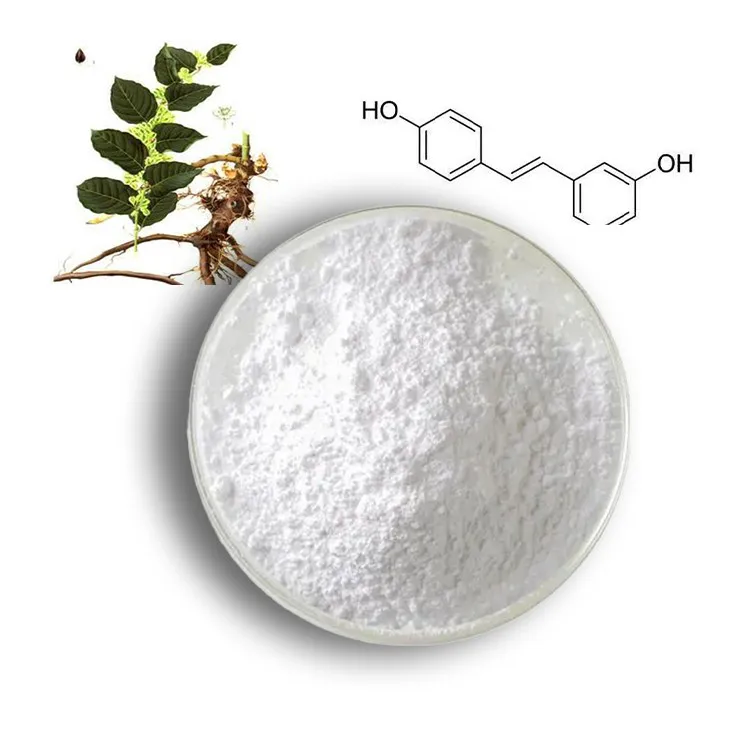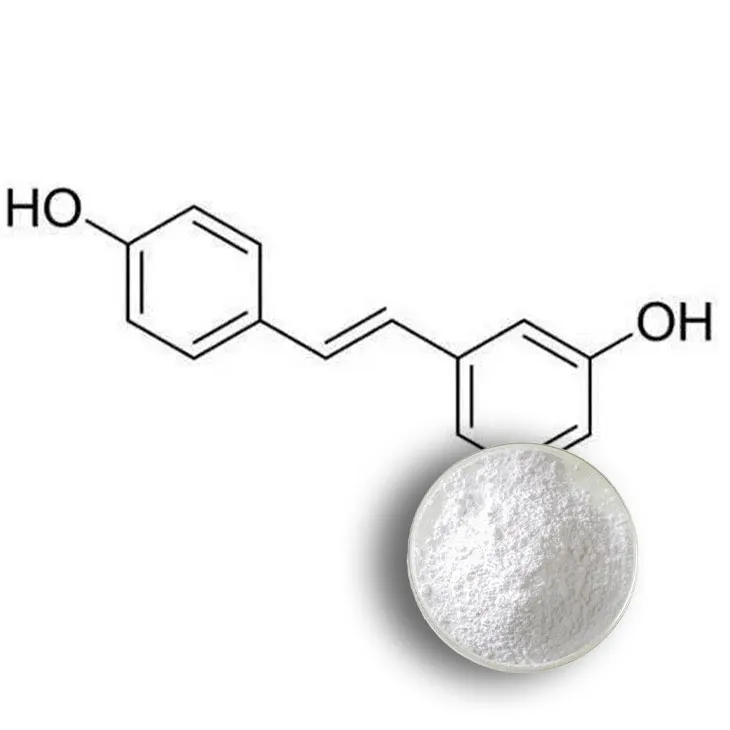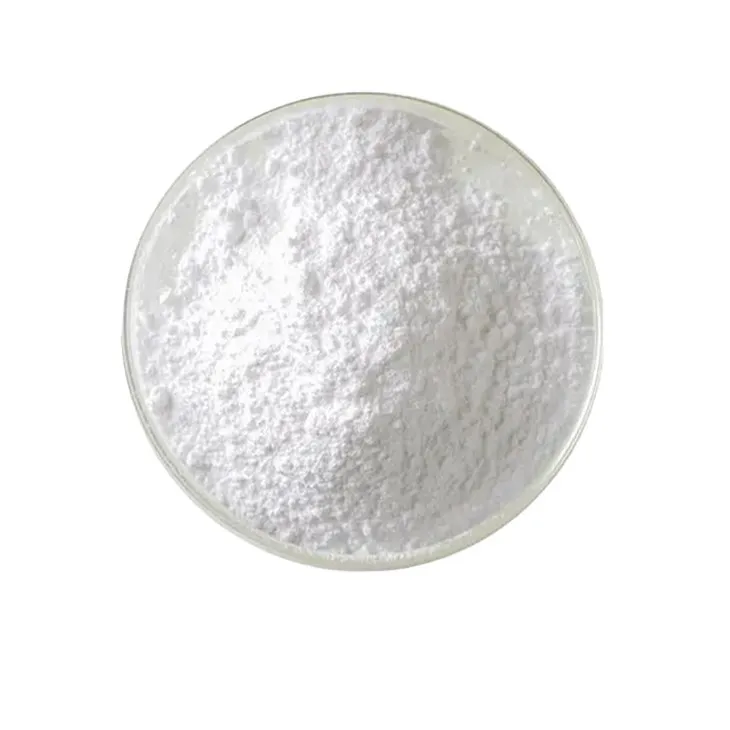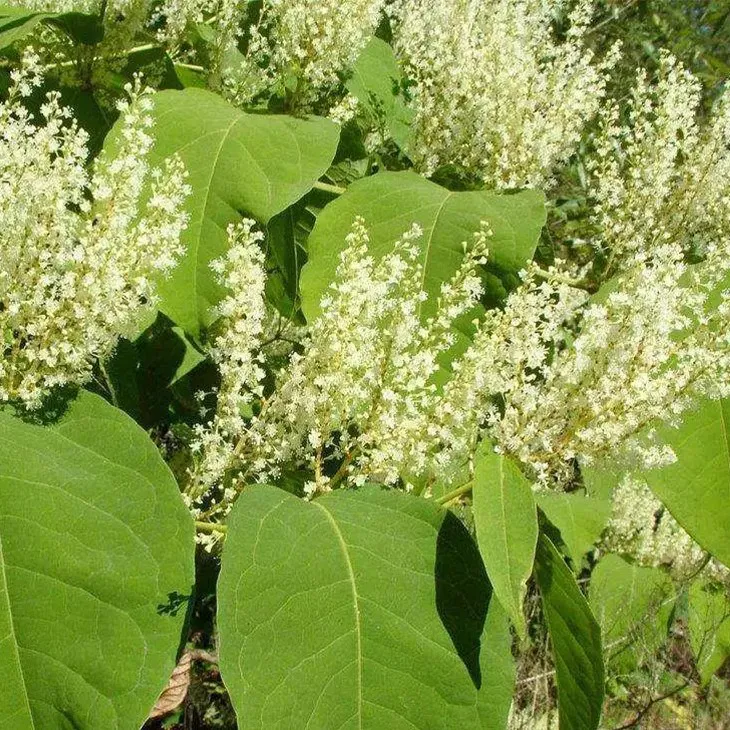- 0086-571-85302990
- sales@greenskybio.com
Resveratrol extract: nature's best - kept secret.
2024-11-14

1. Introduction to White Resveratrol extract
White Resveratrol extract, often regarded as nature's best - kept secret, is a compound that has been garnering increasing attention in the scientific community. It is a natural phytoalexin, which is a type of compound produced by plants as a defense mechanism against various stresses, such as fungal or bacterial infections. Resveratrol can be found in a diverse range of plants, including grapes, berries, and peanuts.

2. Antioxidant Activity of White Resveratrol extract
Antioxidants play a crucial role in maintaining the health of the body by neutralizing free radicals. Free radicals are highly reactive molecules that can cause damage to cells, proteins, and DNA. Scientific research has suggested that white resveratrol extract may possess significant antioxidant activity.
Resveratrol can scavenge free radicals through various chemical mechanisms. For example, it can donate hydrogen atoms to free radicals, thereby stabilizing them and preventing them from causing further oxidative damage. This antioxidant property of resveratrol is of particular interest as oxidative stress has been implicated in a wide range of diseases, including cancer, neurodegenerative diseases, and cardiovascular diseases.

3. Anti - Inflammatory Effects of White Resveratrol Extract
Inflammation is a natural response of the body to injury or infection. However, chronic inflammation can lead to various health problems. White resveratrol extract has been shown to have anti - inflammatory effects.
Resveratrol can modulate the activity of various inflammatory mediators in the body. For instance, it can inhibit the production of pro - inflammatory cytokines, such as interleukin - 1β (IL - 1β) and tumor necrosis factor - α (TNF - α). These cytokines are involved in the initiation and amplification of the inflammatory response. By reducing their production, resveratrol may help to dampen the inflammatory process.
Moreover, resveratrol can also affect the activity of immune cells involved in inflammation. It has been shown to modulate the function of macrophages, which are key immune cells involved in the recognition and clearance of pathogens. By regulating macrophage activity, resveratrol may contribute to the maintenance of a balanced immune response and prevent excessive inflammation.

4. White Resveratrol Extract and Cardiovascular Health
Cardiovascular diseases are a leading cause of death worldwide. Research has explored the potential of white resveratrol extract in promoting cardiovascular health.
One of the ways in which resveratrol may benefit cardiovascular health is by improving blood circulation. It can act on the endothelial cells that line the blood vessels, promoting the production of nitric oxide (NO). Nitric oxide is a vasodilator, which means it can relax the smooth muscles in the blood vessel walls, leading to increased blood flow. Improved blood circulation can help to deliver oxygen and nutrients to the tissues more efficiently and also remove waste products more effectively.
Additionally, resveratrol may have a role in reducing the risk of heart diseases. It has been shown to have beneficial effects on lipid metabolism. For example, it can reduce the levels of low - density lipoprotein (LDL) cholesterol, also known as "bad" cholesterol, while increasing the levels of high - density lipoprotein (HDL) cholesterol, or "good" cholesterol. This favorable effect on lipid profile can contribute to a lower risk of atherosclerosis, a condition characterized by the build - up of fatty plaques in the arteries.

5. Anti - Aging Potential of White Resveratrol Extract
The search for substances with anti - aging potential has been a long - standing pursuit in the field of health and longevity research. White resveratrol extract is one such substance that is being investigated for its possible effects on the aging process.
At the cellular level, resveratrol may influence various processes related to aging. One such process is autophagy, which is the body's way of recycling damaged or unnecessary cellular components. Resveratrol has been shown to stimulate autophagy, which can help to keep cells clean and functioning properly.
Another aspect of resveratrol's potential anti - aging effects is its influence on mitochondrial function. Mitochondria are the powerhouses of the cells, responsible for generating energy. As we age, mitochondrial function declines, leading to a decrease in energy production and an increase in the production of reactive oxygen species (ROS). Resveratrol may help to improve mitochondrial function, thereby reducing the production of ROS and potentially slowing down the aging process.
6. Other Potential Health Benefits of White Resveratrol Extract
In addition to the aforementioned benefits, white resveratrol extract may have other potential health - promoting effects.
- Cancer prevention: Some studies have suggested that resveratrol may have anti - cancer properties. It can interfere with various stages of cancer development, including cell proliferation, angiogenesis (the formation of new blood vessels that supply tumors), and metastasis (the spread of cancer cells to other parts of the body). However, more research is needed to fully understand its role in cancer prevention and treatment.
- Neuroprotective effects: Resveratrol may also be beneficial for brain health. It has been shown to protect neurons from damage caused by oxidative stress and inflammation. In addition, it may have a role in improving cognitive function and reducing the risk of neurodegenerative diseases such as Alzheimer's and Parkinson's diseases. But again, further research is required to confirm these effects.
- Metabolic regulation: Resveratrol may play a role in regulating metabolism. It has been shown to affect glucose metabolism, potentially improving insulin sensitivity. This could be beneficial for individuals with diabetes or those at risk of developing diabetes. Additionally, it may also influence lipid metabolism, as mentioned earlier in the context of cardiovascular health.
7. Current Research and Future Directions
While there has been a significant amount of research on white resveratrol extract in recent years, there are still many aspects that need further investigation.
- Clinical trials: Most of the current knowledge about resveratrol is based on pre - clinical studies, such as in vitro and in vivo experiments using animal models. There is a need for more well - designed clinical trials in humans to determine the safety and efficacy of resveratrol for various health conditions. These trials should also investigate the optimal dosage and formulation of resveratrol for maximum benefit.
- Mechanistic studies: Although some mechanisms of action of resveratrol have been proposed, there are still many unanswered questions. For example, how exactly does resveratrol interact with different cellular targets to produce its various effects? Understanding these mechanisms in more detail will help to develop more targeted and effective therapies based on resveratrol.
- Combination therapies: Another area of future research could be the exploration of resveratrol in combination with other drugs or natural compounds. It is possible that resveratrol may work synergistically with other substances to enhance its health - promoting effects. For example, combining resveratrol with anti - inflammatory drugs or antioxidants may lead to better outcomes in treating certain diseases.
8. Conclusion
White resveratrol extract is a truly fascinating substance with a wide range of potential health benefits. Its antioxidant, anti - inflammatory, and potential effects on cardiovascular health, anti - aging, and other aspects of health make it a compound of great interest. However, more research is needed to fully unlock its potential and to translate the findings from laboratory studies to practical applications in human health. As research continues, we may discover even more about this nature's best - kept secret and how it can be harnessed to improve our well - being.
FAQ:
What is white resveratrol extract?
White resveratrol extract is a compound that is a natural phytoalexin. It can be found in plants like grapes, berries, and peanuts.
Why has white resveratrol extract attracted attention?
It has attracted attention because of its potential health benefits. These include antioxidant, anti - inflammatory effects, potential benefits for cardiovascular health, and anti - aging potential.
How does white resveratrol extract contribute to antioxidant activity?
It helps combat free radicals in the body, which is how it plays a role in antioxidant activity.
What are the potential benefits of its anti - inflammatory effects?
The anti - inflammatory effects could be beneficial for various health conditions, though more research is needed to fully understand all of these potential benefits.
How might white resveratrol extract affect cardiovascular health?
Studies have shown possible effects on improving blood circulation and reducing the risk of heart diseases.
Related literature
- Resveratrol: A Review of Its Anti - Aging and Anti - Inflammatory Effects"
- "The Role of Resveratrol in Cardiovascular Health: A Comprehensive Review"
- "Resveratrol and Antioxidant Activity: Current Knowledge and Future Perspectives"
- ▶ Hesperidin
- ▶ Citrus Bioflavonoids
- ▶ Plant Extract
- ▶ lycopene
- ▶ Diosmin
- ▶ Grape seed extract
- ▶ Sea buckthorn Juice Powder
- ▶ Fruit Juice Powder
- ▶ Hops Extract
- ▶ Artichoke Extract
- ▶ Mushroom extract
- ▶ Astaxanthin
- ▶ Green Tea Extract
- ▶ Curcumin
- ▶ Horse Chestnut Extract
- ▶ Other Product
- ▶ Boswellia Serrata Extract
- ▶ Resveratrol
- ▶ Marigold Extract
- ▶ Grape Leaf Extract
- ▶ New Product
- ▶ Aminolevulinic acid
- ▶ Cranberry Extract
- ▶ Red Yeast Rice
- ▶ Red Wine Extract
-
Cat Claw Extract
2024-11-14
-
Thunder God Vine Extract
2024-11-14
-
Berberis aristata Extract
2024-11-14
-
Chia Seed Powder
2024-11-14
-
Hops Extract
2024-11-14
-
melatonin extract
2024-11-14
-
Peppermint Oil
2024-11-14
-
Gynostemma pentaphyllum extract
2024-11-14
-
Licorice Root Extract Powder
2024-11-14
-
Quercetin
2024-11-14





















